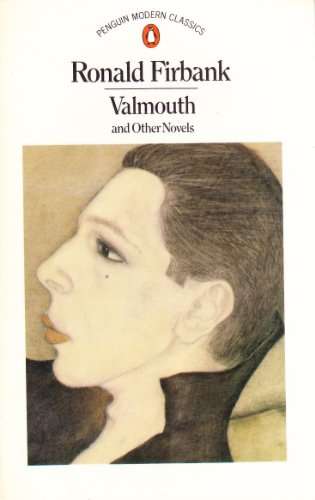
Valmouth and Other Novels by Ronald Firbank (inspired by the aesthetes of the 1890's)
Check my rate
| Main centres: | 1-3 business days |
| Regional areas: | 3-4 business days |
| Remote areas: | 3-5 business days |

| Main centres: | 1-3 business days |
| Regional areas: | 3-4 business days |
| Remote areas: | 3-5 business days |
Published by Penguin, 1982, softcover, 251 pages, condition; as new.
Her ladyship languishes on the jaguar-skin sofa, robed in pyjamas; a negro boy roams the gold city streets, searching for a shabet but dreaming of butterflies; there, encased in a chasuble, his Eminence baptises the Duquesa DunEden. These are scenes from the novels featured in this collection.
Ronald Firbank was an innovative English novelist. His eight short novels, partly inspired by the London aesthetes of the 1890s, especially Oscar Wilde, consist largely of dialogue, with references to religion, social-climbing, and sexuality.
Playwright Joe Orton was an admirer of Firbank's works, calling him "the only impressionist in the English novel" and "the source."[8] He added that although he enjoyed several of Firbank's novels, he described his own writing as containing a greater vivid personal imagination when compared with Firbank's. His novels have been championed by many English novelists including E. M. Forster, Evelyn Waugh, Alan Hollinghurst and Simon Raven. The poet W. H. Auden praised him highly in a radio broadcast on the BBC Third Programme in June 1961 (the text of the broadcast was published in The Listener of 8 June 1961). Susan Sontag named his novels as part of "the canon of camp"[10] in her 1964 essay "Notes on 'Camp'".
In her 1973 critical biography, Prancing Novelist, Brigid Brophy examines Firbank's cult of Oscar Wilde.
Angela Carter created a radio play inspired by the life of Firbank called A Self-Made Man which was first broadcast on Radio 3 in 1984.
Steven Moore records Firbank's critical reception up to 1995 in his Ronald Firbank: An Annotated Bibliography of Secondary Materials (Dalkey Archive Press, 1996).
In Alan Hollinghurst's novel The Swimming Pool Library Firbank's work and life are central themes.